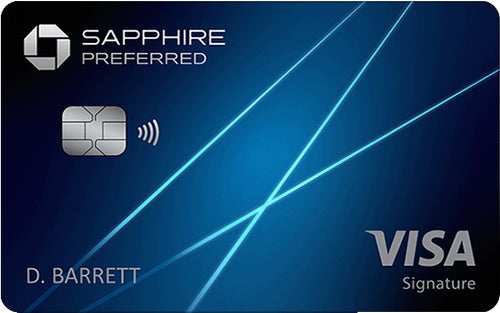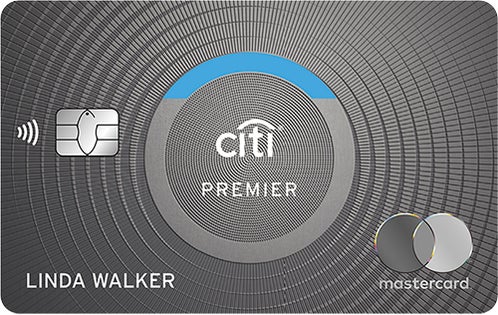| Rewards Rating: | 4.9 / 5 |
| Rewards Value: | 4.3 |
| Annual Percentage Rate: | 4.0 |
| Rewards Flexibility: | 5.0 |
| Features: | 3.0 |
| Issuer Customer Experience: | 4.0 |
In a Nutshell:
This is a flexible rewards card with a high rewards rate and valuable perks for frequent travelers.
Rewards Rate
|  |
Sign-up Bonus
|  |
Annual Bonus |  |
Annual Fee |  |
Average Yearly Rewards Value ($1,325 monthly spend) |  |
APR |  |
Rewards Redemption
Cons
|  |
Capital One Customer Service Ratings
|  |
Other Notable Features: No foreign transaction fees (See Rates and Fees); World Elite Mastercard benefits, Lifestyle Collection credit
The Capital One Venture card is a terrific travel credit card if you’re looking for a rewards program with great everyday value, a solid sign-up bonus and the flexibility to redeem miles for nearly all travel purchases, not just those made through an issuer’s portal. And while the card carries an annual fee, it can be easily offset with minimal spending, making the Venture easily one of the best travel cards for beginners.
Why you might want the Capital One Venture card
With a flat rewards rate on all purchases, the Capital One Venture Card makes racking up miles to use for your next vacation a breeze. This card’s simple earning scheme, flexible redemption options, high sign-up bonus and other card benefits easily earn it a spot on our list of the best travel credit cards. The Venture card is also one of the highest-ranking cards in our rewards credit card database when it comes to rewards rate, rewards value and sign-up bonus value.
See related:How to maximize the Capital One Venture card
Valuable sign-up bonus
The Venture card is currently carrying an offer where you’ll receive for a Limited Time $250 to use on Capital One Travel in your first cardholder year, plus earn 75,000 bonus miles once you spend $4,000 on purchases within the first 3 months from account opening – that’s equal to $1,000 in travel. Plus, you could squeeze more value out of those miles with the right transfer partner.
On top of that, in spending the $4,000 required to meet the bonus, you’d earn at least 8,000 miles (based on the card’s lowest rewards rate), worth another $80 in travel. That’s a grand total of at least $1,080 in travel rewards via the sign-up bonus. So while the new offer is a bit below the card’s all-time-high (up to 100,000 miles after spending $20,000 in your first 12 months), it’s still a great value.
Easily earn and transfer miles to frequent flyer programs
For the most part, the miles you earn on your Venture card are worth 1 cent per mile, making it easy to keep track of exactly how much you have to spend. As long as you redeem them for travel – either through the Capital One Travel Center or for any previous travel purchase – you get good value out of your rewards.
The Venture card offers 2 miles per dollar on every purchase while most travel rewards cards only award more than 1 mile per dollar in particular bonus categories. This makes it easy to rack up plenty of rewards without having to carefully weigh your spending to a particular card. If you are the kind of spender who likes to use one card for all your purchases, the generous rate on everyday spending is a major perk.
Capital One also features over 15 travel partners that Venture cardholders can transfer miles to, most at a 1:1 rate. Considering that you earn 5X miles on hotels, vacation rentals and rental cars booked through Capital One Travel, this is a huge advantage to the Venture card. Though you may lose some of the value of your miles by transferring, it can still be beneficial for users.
Travel and warranty benefits compare well with other travel cards
Like many travel cards, the Venture comes with several travel benefits and protections that add to its value.
- Up to $120 credit for Global Entry/TSA Precheck – The Venture card will cover the application fee for Global Entry or TSA Precheck – a benefit usually reserved for luxury cards.
- $50 Lifestyle Collection experience credit – Every eligible hotel and vacation rental stay booked from the Lifestyle Collection includes this credit, making it a benefit you can enjoy throughout the year.
- Extended Warranty* — Doubles the time period of your covered purchase’s original warranty, up to a maximum of twenty-four months.
- Purchase Assurance* — Eligible purchases made with your card are covered if damaged or stolen within the first 90 days of purchase.
- Lost or Damaged Luggage* — Reimbursement for the actual cost of repairing or replacing your checked or carry-on luggage and personal property contained therein that is lost or damaged.
- MasterRental Insurance* – Use your card to rent an eligible vehicle and you may be covered for physical damage and theft of the rental vehicle.
*Benefit available to accounts approved for the World Elite Mastercard product, subject to terms, conditions, and exclusions in the World Elite Mastercard Guide to Benefits. See Account Terms or Application Terms for more details. Terms, conditions and exclusions apply.
To take advantage of these protections, put all major travel purchases on your Venture card.
Why you might want a different card
The Capital One Venture card carries a fairly steep annual fee of $95 (See Rates and Fees). Though this cost should be easy to offset if you use the Venture card for a good chunk of your everyday spending, it makes sense to do the math to see if the Venture card is worth it for you. Timing is also a key consideration as you save up your miles for the future. You may struggle to squeeze much value out of this card in the short term if you don’t plan to book travel anytime soon.
Keep in mind, however, that the Venture card’s $95 annual fee (See Rates and Fees) may be worth it if you earn enough rewards via card spend to offset the cost.
Venture miles are most valuable when redeemed for travel
While Capital One miles are one of the most flexible rewards currencies available, you won’t get quite as much value out of those rewards with cash redemption options. It is easy to use miles to cover any travel purchase you’ve made on your card, but other options get less value out of each mile.
To get the most value out of your miles, save them for travel purchases. The mile value is about the middle of the pack among rewards cards. If you don’t mind more maintenance, you can get a better value with cards such as the Chase Sapphire Reserve® card, which offers a higher point value when you redeem points for travel through Chase.
Redeeming your miles for these purchases is simple. When you log into your account on the Capital One website or app, you can choose the option to redeem a purchase to view all eligible travel costs from the last 90 days. When you choose one of the options, you’ll receive a statement credit in the amount of the purchase.
No prequalification and high credit score minimum
Unfortunately, Capital One does not currently offer online prequalification for the Venture card, so you’ll need to submit a formal application and put your credit score at risk with a “hard pull” to see if you make the cut. The Venture card is also designed for users with good to excellent credit (above 670), so you will want to ensure you meet those requirements before you apply.
If you already have a Capital One card, such as the Capital One VentureOne Rewards Credit Card, you might be able to upgrade your account rather than filling out a new application. That way, you don’t have to deal with a hard pull on your credit or canceling a credit card account. Just keep in mind that you won’t be eligible for a sign-up bonus if you choose this option.
How does the Venture card compare to other travel cards?
The Venture card is a great, easy-to-use travel card for cardholders who want a high flat rate on all purchases. Our team of credit card experts researched over 130 rewards cards to see how the Venture card stacks up against other cards in its category and found that it more than holds its own. When compared to other rewards cards, the Venture card’s average rewards rate and sign-up bonus value stand out as particularly impressive. Meanwhile, the card falls a bit short when it comes to its annual fee.
Keep in mind, however, that the Venture card’s $95 annual fee (See Rates and Fees) may be worth it if you earn enough rewards via card spend to offset the cost.
While the Venture card should offer the average consumer solid value overall, it’s not the only travel rewards card worth a look. Cards that offer bonus rewards on certain categories of spending might be a bit more valuable for strategic spenders. Here’s a quick look at a few of our top travel card alternatives:
 |  |  (The Citi Premier Card is no longer available) |
Rewards rate
| Rewards rate
| Rewards rate
|
| Sign-up bonus | Welcome bonus
| Sign-up bonus
|
| Annual fee $95 | Annual fee $0 | Annual fee $95 |
Other things to know
| Other things to know
| Other things to know
|
Chase Sapphire Preferred
Though Venture is currently offering a solid sign-up bonus, one of the Venture card’s biggest competitors is the Chase Sapphire Preferred card. The card carries lucrative, practical everyday bonus categories like dining, popular streaming services and online grocery store purchases (excluding wholesale clubs and superstore purchases at places like Target and Walmart).
Since these spending categories make up a big chunk of most people’s budget, they could prove more valuable than the Venture card’s flat 2-mile-per-dollar rewards rate. A key downside, however, is that you’ll need to book travel through Chase to maximize your rewards while the Venture allows you to redeem miles with more flexibility.
Discover it® Miles
Another card that suits travelers who value simplicity, the Discover it® Miles card offers a flat 1.5 miles per dollar on every purchase and, like the Venture card, allows you to redeem your miles for nearly any outside travel purchase. You’ll also pay no annual fee and no foreign transaction fees. Best of all, Discover will match all the miles you earn at the end of your first year. This could make it a lucrative option for heavy spenders in year one.
Citi Premier Card – (The Citi Premier Card is no longer available)
The Citi Premier has a $95 annual fee and is slightly more rewarding in several spending categories, such as restaurants, gas stations and supermarkets, where it offers 3 points per dollar spent. The card only earns 1 point per dollar spent on general purchases but for cardholders who spend mostly in the high point categories, the Citi Premier may make offsetting the $95 annual fee a lot easier than the Capital One Venture.
How to use the Venture card:
- Put all big travel purchases on the card to use the protections.
- Redeem your miles for travel purchases rather than statement credits to avoid losing value.
- Consider pairing the Venture card with another rewards card with bonus categories on certain purchases to maximize your rewards rate.
- Use the card for all spending in your first three months to meet the bonus spending requirement.
- When booking hotel stays, book with Lifestyle Collection properties for experience credits and other perks.
See related: How I use my Capital One Venture card
Is the Venture card right for you?
To decide whether the Venture card is worth it for you in the long run, take a look at your typical spending habits and calculate whether or not the rewards you’ll earn by using the card are higher than the card’s cost.
While you could stretch your rewards even further by transferring to some of Capital One’s travel partners and booking stays through Capital One Stays, let’s assume you want to keep things simple. You’ll earn 2 miles per dollar spent at a value of 1 cent per mile – essentially 2 cents back in travel value per dollar spent. This means it’s as easy as multiplying your average monthly spend by 12, then multiplying that by 2 and dividing by 100. If the number you get is less than 95, the card won’t be worth it, as your rewards won’t offset the card’s cost. If it’s more than 95, the card may be worth it since your rewards will likely cover the annual fee.
Venture card value, at a glance:
| Monthly spend | Verdict |
|---|---|
| $0 – $395 | Based on this spend, the card is likely: Not worth it (rewards would not offset annual fee) |
| $396 or more | Based on this spend, the card is likely: Worth it (rewards would cover annual fee) |
As you can see, the Venture card should make sense in terms of cost-benefit if you expect to spend at least $396 per month with the card. That’s not even considering the up to $120 credit for TSA Precheck or Global Entry that’s included as a benefit with the card, which more than covers the annual fee on its own. Of course, to get the most value out of the card, you’ll also want to be sure you can spend at least $4,000 within the first three months to secure the sign-up bonus.
For Capital One products listed on this page, some of the benefits may be provided by Visa® or Mastercard® and may vary by product. See the respective Guide to Benefits for details, as terms and exclusions apply.
Our reviews and best card recommendations are based on an objective rating process and are not driven by advertising dollars. However, we do receive compensation when you click on links to products from our partners. Learn more about our advertising policy
All reviews are prepared by CreditCards.com staff. Opinions expressed therein are solely those of the reviewer and have not been reviewed or approved by any advertiser. The information, including card rates and fees, presented in the review is accurate as of the date of the review. Check the data at the top of this page and the bank’s website for the most current information.
Responses to comments in the discussion section below are not provided, reviewed, approved, endorsed or commissioned by our financial partners. It is not our partner’s responsibility to ensure all posts or questions are answered.
Partner Offer: carefully review product terms on Capital One's site before applying
